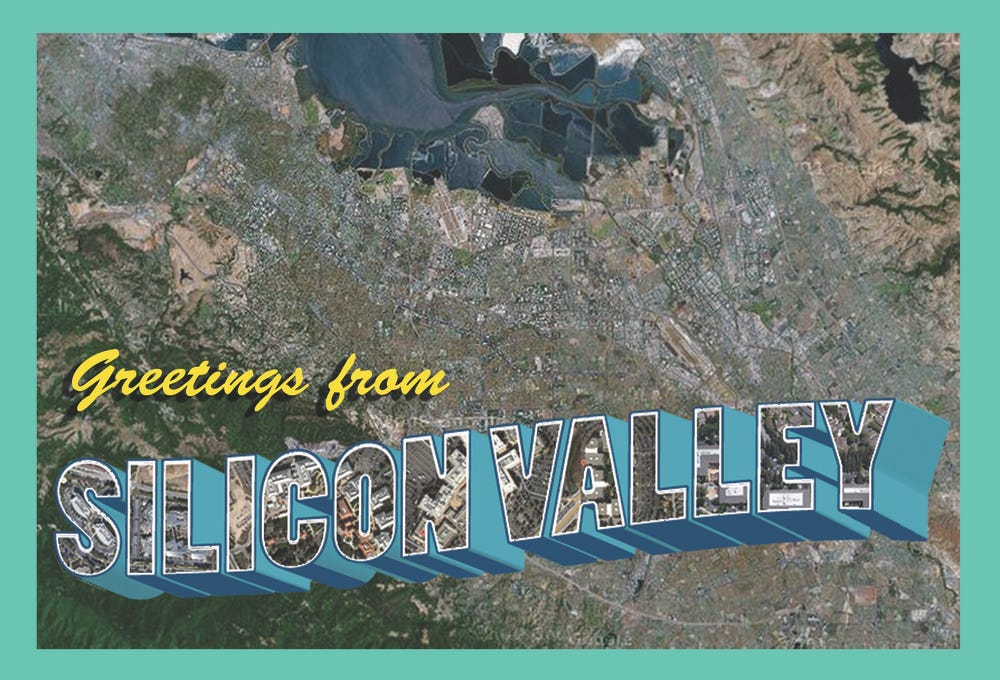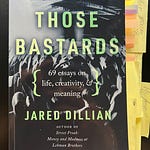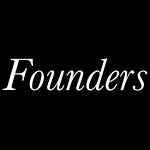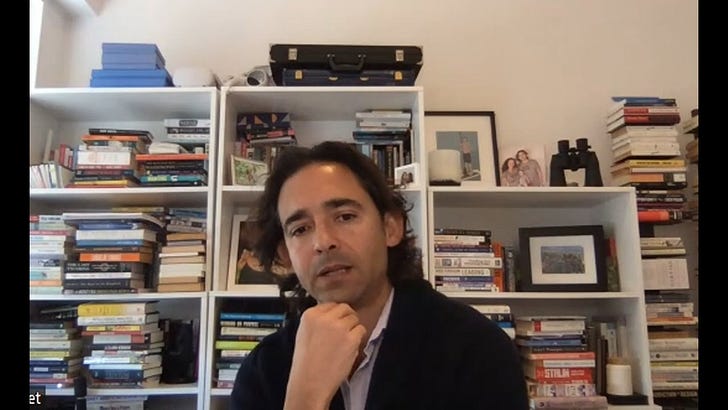Hello everyone,
I’m excited to share my second conversation with Sebastian Mallaby. Last time, we discussed his book More Money Than God. A quote from that conversation stuck with me:
“The key was to do an unreasonable amount of preparation work. It shows you're serious and not wasting people's time by asking the obvious questions.”
This time, we discussed The Power Law (see my write-up) in which he tackled the history of venture capital. The two worlds make for an interesting contrast: venture capitalists, networkers by nature, are more willing to meet and chat. But they’re also natural storytellers which presents a challenge in the search for truth.
In his book, Mallaby tried to disentangle luck and skill in venture investing, how to build winning and lasting cultures, and the importance of VCs for Silicon Valley. I had a lot of fun digging into these questions with him. I hope you enjoy the conversation. You can listen to it on your podcast player of choice: Spotify, Apple, at anchor, and via RSS.
You can also add the Substack podcast feed to your podcasting player with the link on the bottom-right of the player.
While individually “the story of every bet can seem to hinge on serendipity,” he argues that over the long run, “the best venture capitalists consciously create their luck.” The best “work systematically to boost the odds that serendipity will strike repeatedly.” A History of Systematic Serendipity and Grand Slams
“The great challenge at venture partnerships is that the principals must refrain from killing each other.” Michael Moritz
“When people write about the venture business, they’re always writing about the startups we back. They never write about the most important investment we make, which is in the business.” Michael Moritz.
"The fast moving of ideas, people and money until they reached their optimal use, that’s what made Silicon Valley worked. That’s what made innovation turbocharged. "But where did that fast circulation come from, and my argument is it comes from venture capitalists."
Some highlights from the conversation:
Sequoia:
“It took a year or two of networking to break into the cathedral. But once I was in they are very thoughtful people. … They explained to me how they thought about behavioral biases in decision-making. … For example, we know that we anchor on past decisions. When a VC decides not to invest in a startup at the Series A stage, it's quite difficult to change your mind at the Series B. … it's painful to pay much more … because we were wrong the first time. They kind put that on the table and said, we’re probably anchoring, we're probably turning things down at Series B. From now on anybody who argues against the Series B investment is going to be subjected to cross examination - are you sure you're not anchoring?”
Strategy buckets in venture vs. hedge funds:
“Having written More Money Than God I was keen to put these different companies in buckets. I would see two different venture investors who had invested in the same company. I would try to find out … the contrasting mindsets. … People tend to have a few different stories going on in their head at once when they invest. It's not like you go with one chain of logic but not the other one. In venture capital, the distinctions people make are more around stage. Are you a seed investor, a series A investor, a growth investor. They might make distinctions by geography and they might make distinctions by sector.
But the mental approach, they say things like, some people want to bet on the size of the market and other people really want to bet on the type of founder they are backing. When I stress tested that kind of theory, I found it was normally not true.
Google had a strong position at series A because it had a working product which already had better search results than rivals. [Sequoia and Kleiner Perkins shared the round.] You had a natural experiment. The two were doing the same investment: did they have a different logic? And I came to the view that they had a subtly different logic. Kleiner Perkins was more a believer in technical breakthroughs, a product that was 10x better. I think that reflected the fact that both the dominant partners, John Doerr and Vinod Khosla were engineers by training. When they backed Google, I think they really believed the fact that the product was better was a huge deal. And therefore it justified a high valuation. I think Michael Moritz, who invested for Sequoia, came at it with a slightly different mindset. He also could see the product was much better. But I think he also thought of the Google investment in terms of the media side that he came out of himself. He said he made he invested in Google to look after Yahoo. He'd already invested in Yahoo. Yahoo had a popular web portal at the time. Part of him thought that Google could be the search engine in the top right-hand corner of the Yahoo site, a very valuable utility.”
Identifying founders:
“[At Accel] the idea was that when you saw a new technological wave coming, you would prepare your mind for what was going to happen. You would think through the potential businesses that would logically have to be created. … different types of business would logically have different types of founders.
When you were building capital-intensive hardware you wanted somebody who was really responsible and deliberate and a good engineer and was not going to make the mistake of spending large amounts of capital on a manufacturing operation until they really got the design.
But when you were doing software, 10 or 20 years later … much more cheaply than a hardware product. The right approach is to move fast and break things. When Mark said that about Facebook, it wasn't some sort of t-shirt slogan.
It was the logical implication of a world where software businesses were dominant. At software you do A/B testing. You put things in the market and … see which one goes better. The barrier to putting it into the market is so low, that's the best way to figure out product market fit. Therefore in a software world, a young founder who is brash and moves quickly and doesn't care about being responsible is perfectly fine.”
Asset manager franchise value:
“If you can create a machine, a system that can survive a change of staff and pretty much function the same way, then you've got something with franchise value. Also if you've got predictable revenue streams. … Private equity is so large that simply the management fee is attractive for the public markets. And there are fairly formulaic things that you do both in evaluating the deal and then adding value afterwards. Um, not to say they're simple because they could involve quite complex, say data science around improving the pricing strategy of the portfolio company after you've bought it. It's not simple, but it's formulaic.
Hedge funds, when it comes to discretionary trading are simply not like that. There's a funny story in More Money than God about Paul Tudor Jones who tried to systematize this macro trading, had somebody to sit right next to him and watch his moves and … and take those insights and put them into an algorithm and do systematic trading. It just didn't work at all. … The exception in hedge fund space is algorithmic trading, where … concentrating market share in a few hands, those guys possibly could go public one day.”
Are VCs important?
“When I looked carefully and in detail at the history of Silicon Valley, I came away with a view that they were extremely important. People would say it's about Stanford. … But it just is wrong. MIT was a stronger engineering school in the sixties and seventies when this whole story began. … Then there was another story about defense contracts being the explanation for the origin of Silicon Valley. And yes, there were defense dollars being spent on semiconductors … but there were more defense dollars being spent on the military industrial complex centered on MIT and the Boston area. …
Another more persuasive story is about non-compete contracts. California has a special provision in the law that says you can't prevent your employee from quitting your company and joining a startup. And that's important to the startup ecosystem. I take that seriously. … When you look through these different variables, it turns out that venture capital really was the key thing that made Northern California special. That particular sort of risk friendly version of venture capital that was very hands-on and willing to back entrepreneurs even if they didn't necessarily have all the pieces they needed to make a startup function. ….
And so in this way, the act of entrepreneurship, which is scary and risky, is a bit de-risked by venture capital. Venture capital is a machine for manufacturing courage. That's extremely important to understanding how Silicon Valley grew up.”
Disclaimer: I write and podcast for entertainment purposes only. This is not investment advice. I am not your fiduciary or advisor. Do your own work and seek your own financial, tax, and legal advice before making any investment decisions.
















🎙Sebastian Mallaby and the Machine for Manufacturing Courage